Even though there are dozens of needles in and around my weaving and sewing spaces, nine stand out from the rest. These go-to needles have earned special favor. As essential tools, these needles have specific holders and permanent homes.
- Sharp needles: hand-hemming, hand-sewing, stitching on labels, and stitching a tapestry to a linen mat for mounting (curved needle)
HOLDER: Pincushion I made in 1980
HOME: Sewing supply closet, “Needles and Pins” drawer
- Blunt tapestry needles, small and medium: hemstitching, stitching a thread mark to the right side of the fabric, sewing in tapestry weft tails, finishing work—needle-weaving for corrections and repairs
HOLDER: Remnant of cotton handwoven plain weave fabric
HOME: Loom-side cart, top drawer
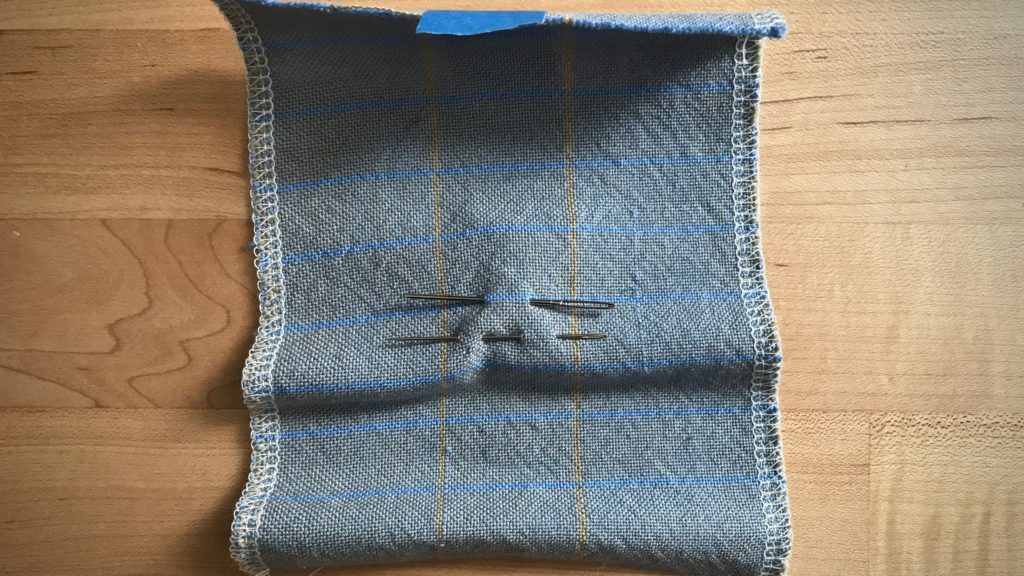
- Blunt tapestry needles, large: hemstitching, hand-hemming rugs, weaving small tapestries
HOLDER: Felted inkle-woven tape
HOME: cutting/work table, Grandma’s old sewing tin
- Sacking needles: pulling rag rug warp ends out of scrap weft, threading warp ends back into a wool rug (I did this…once)
HOLDER: straw-woven pouch from a trip to The Philippines
HOME: weaving supply closet, top drawer on the left
May you find the needle you need when you need a needle.
All the best,
Karen

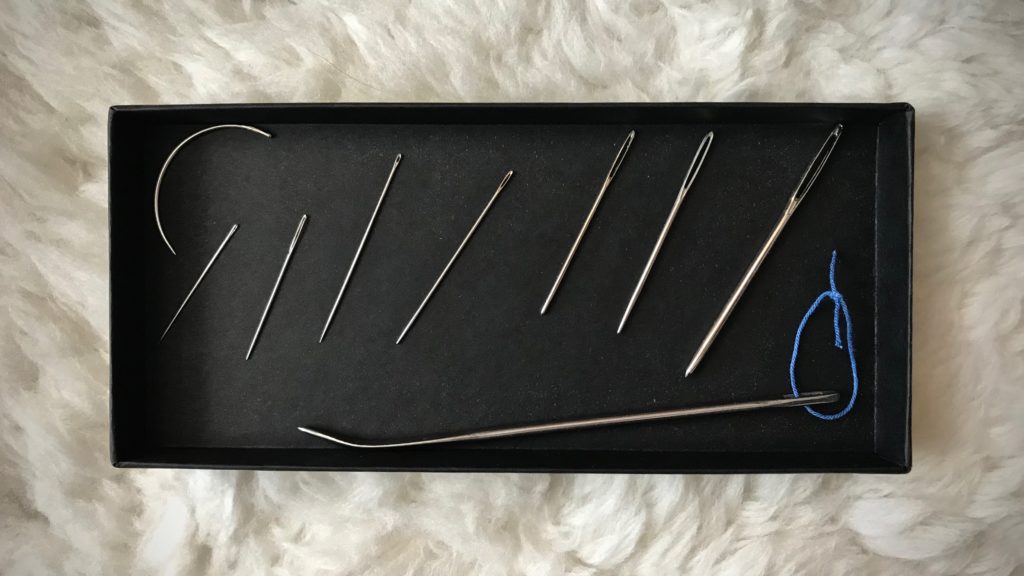
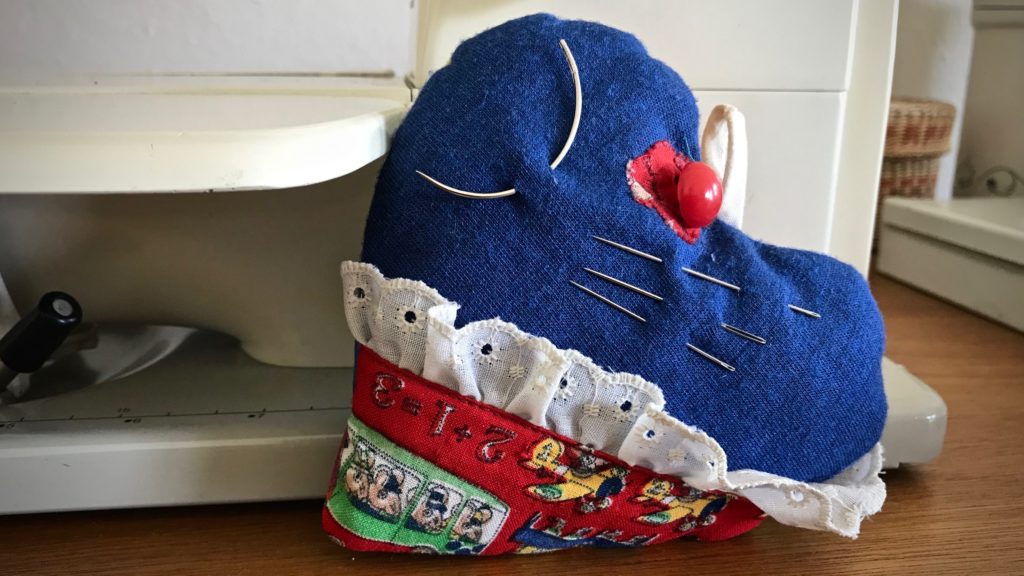
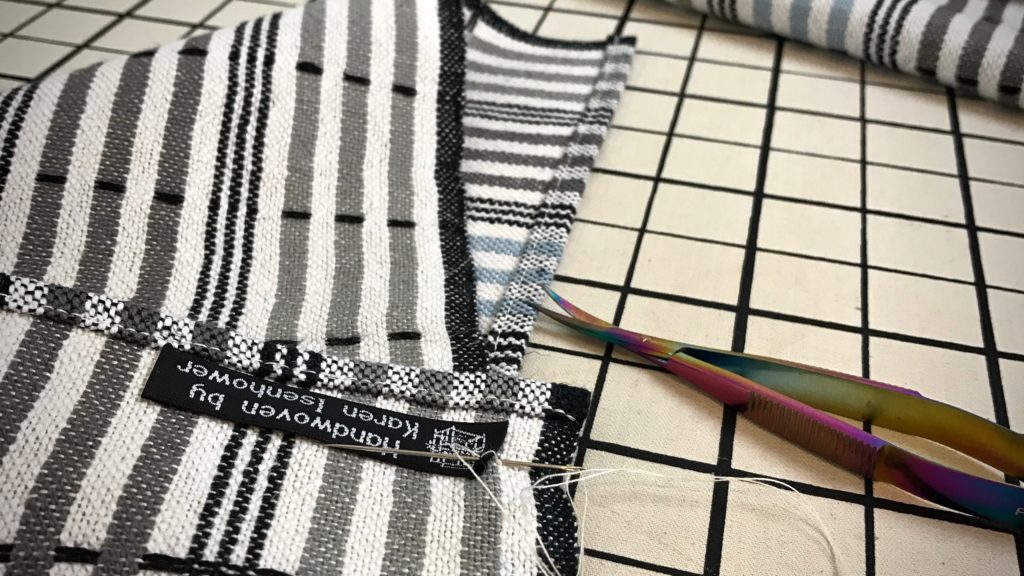
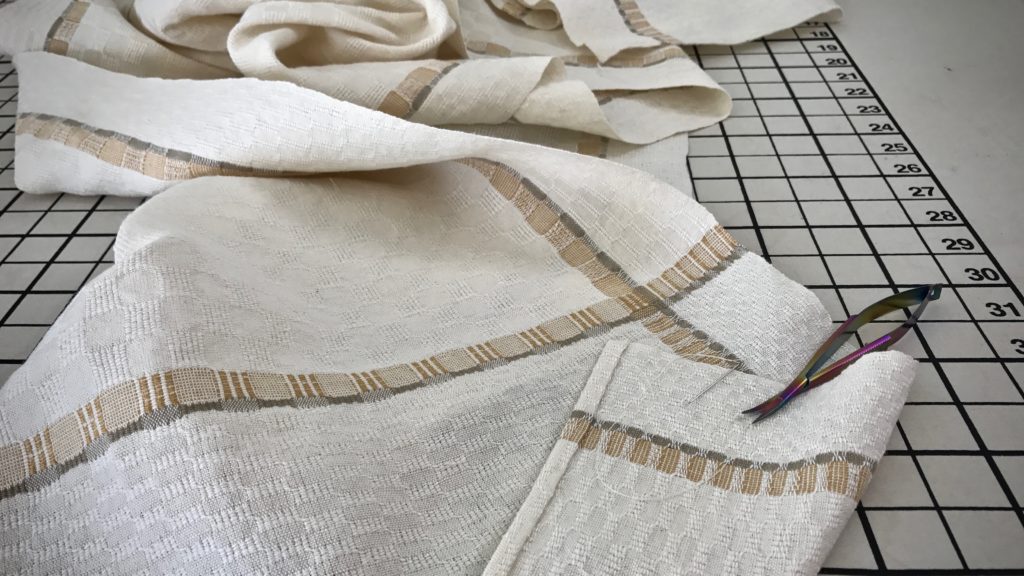
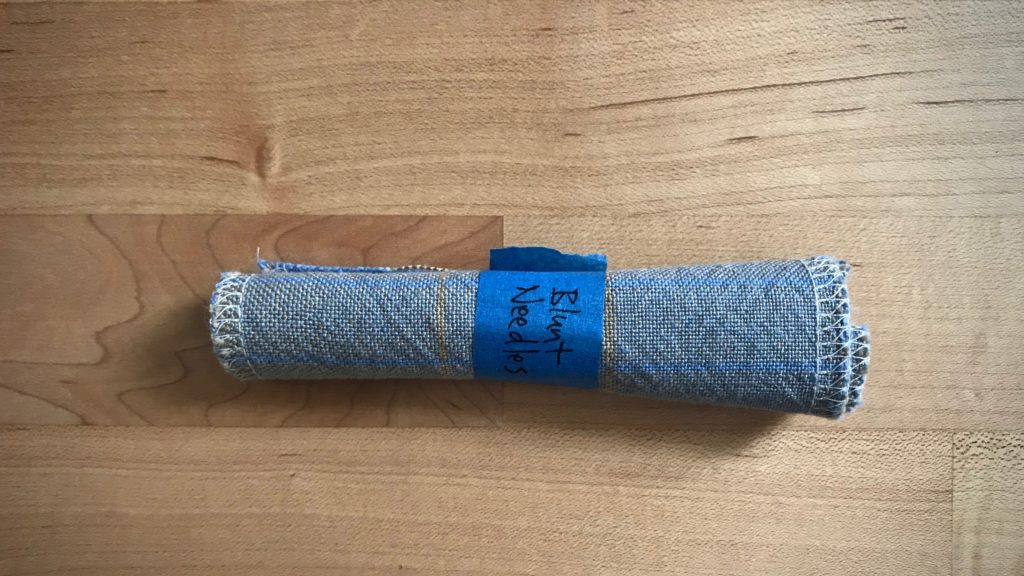
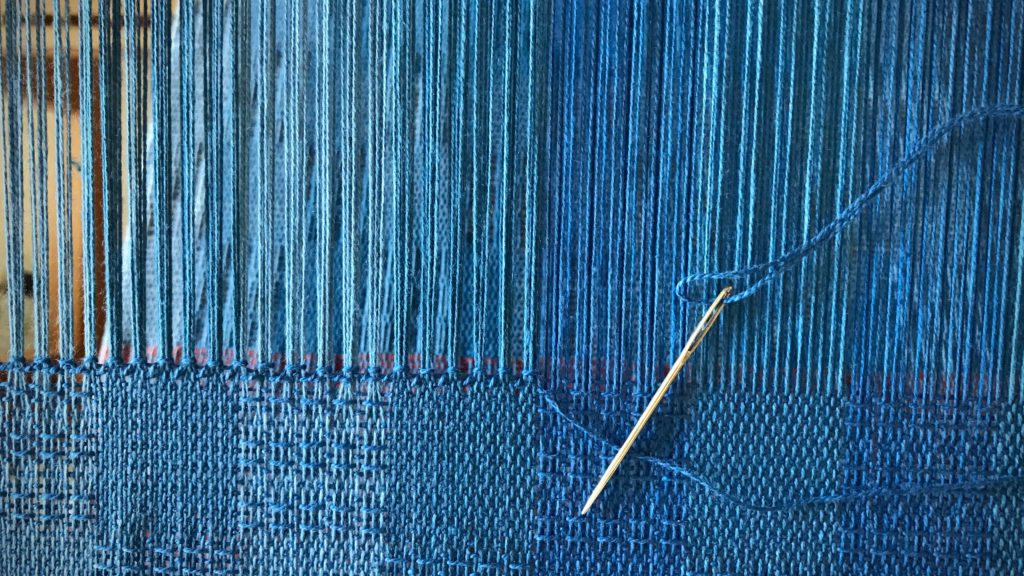
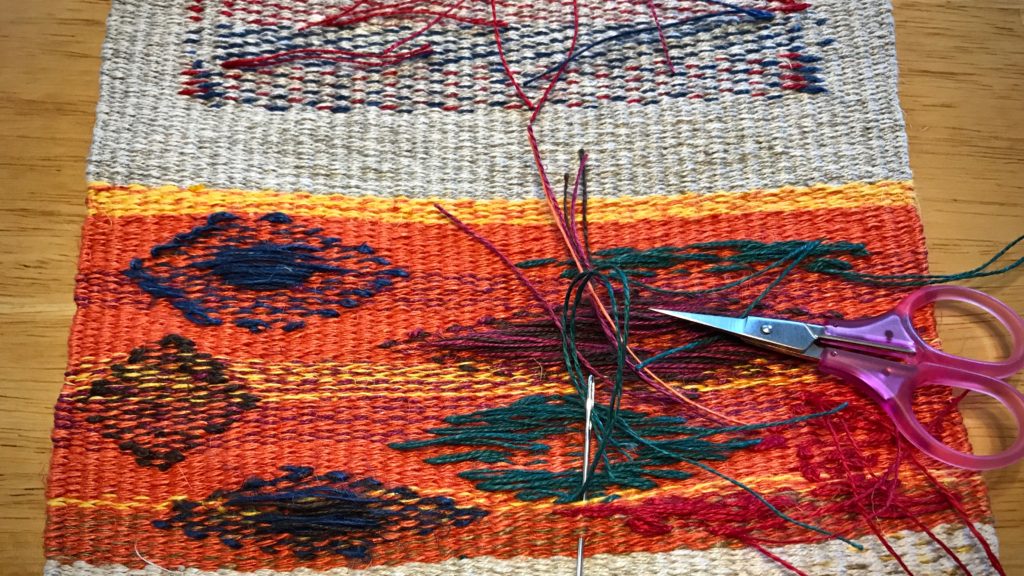
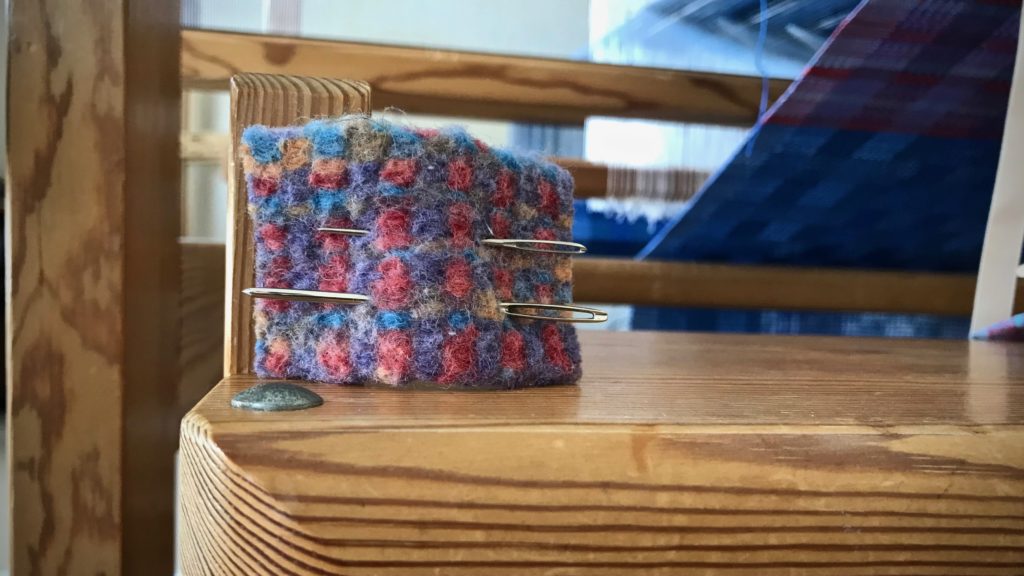
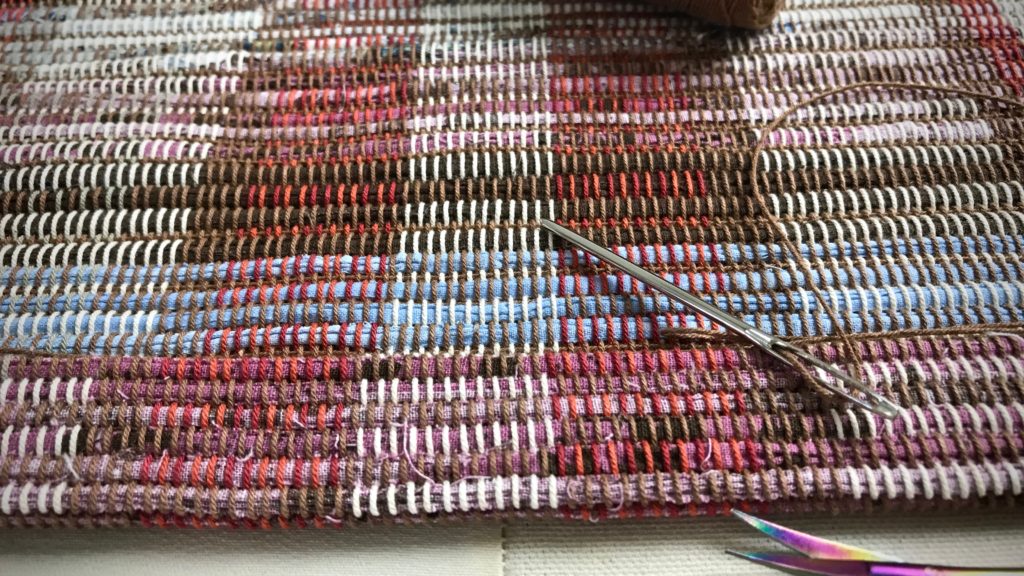
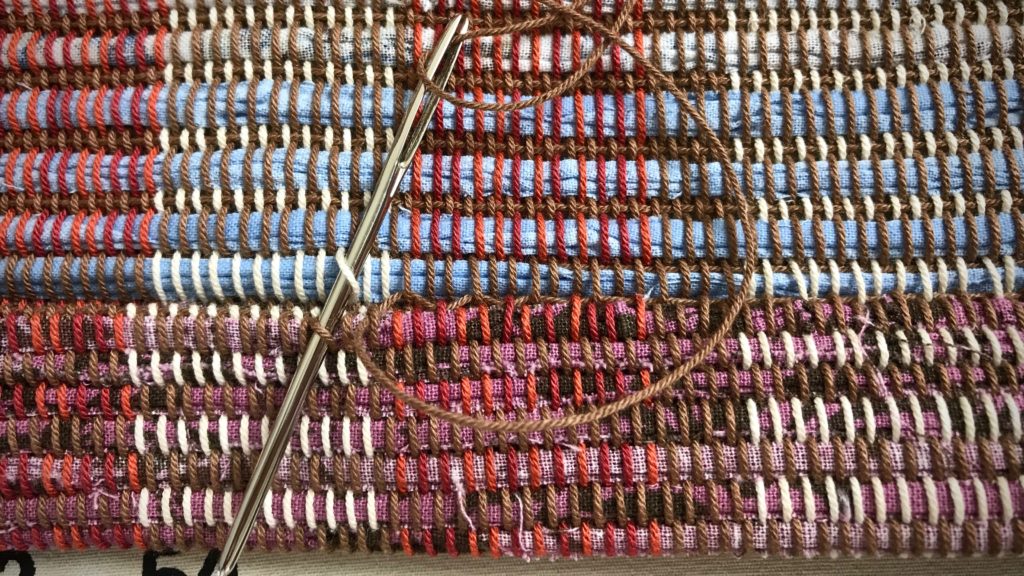
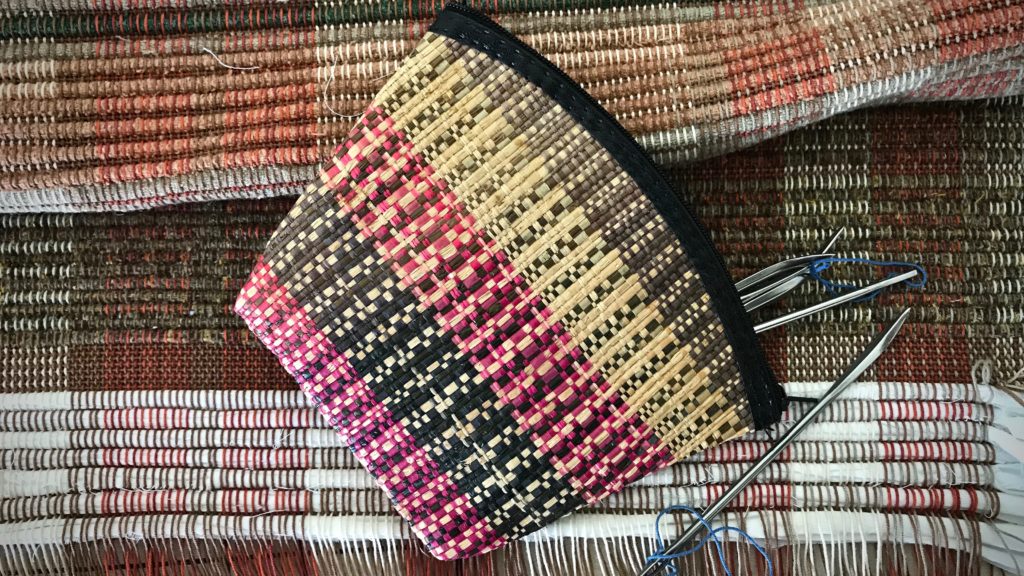
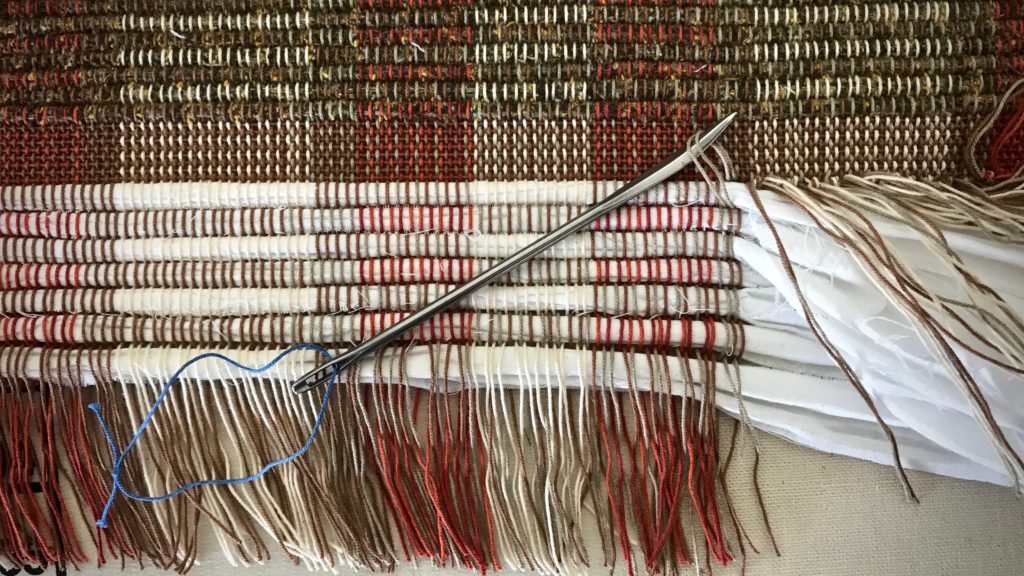
Works for you, and a beautiful system! I have several “work stations” (sounds more organized than it is!) on two floors. So, my “system” is four (handwoven of course!) pin cushions, each with a variety of the needles, in various places. Not ideal, I suppose, because often the needles “migrate” and the right one is sometimes not in the right place! Do enjoy all your posts.
Hi Nanette, I like how you call them “work stations.” It does sound very orderly. I do understand how those needles can migrate! Mine do that sometimes, too. At least we have some sort of system…
Happy weaving,
Karen
I love how you store the different needles you use! It makes so much sense. In addition to being a beautiful way to preserve memories, I really like the make-do approach, too.
Hi Elisabeth, I enjoy finding creative solutions to keeping things somewhat organized. I may have learned that from you. 🙂
It is sweet to find ways to use special items, like my Grandma’s sewing tin.
Merry Christmas,
Karen
You’re inspiring me to make something out of a handwoven scrap for needles and get them out of the little plastic box.
Hi Beth, A little piece here, a little piece there. Those handwoven scraps are pretty useful.
Happy weaving,
Karen
my great aunt did a similar checkerboard pattern
“https://flic.kr/p/EnVPZE”
my needles will migrate thanx to the intervention of critters.
filling your pincushion with wool fleece with the natural lanolin
will help prevent rusting- cotton will collect moisture and help them rust
so wool cloth for your pin cushions is better in the long run too.
Hi Faun, It looks like your great aunt’s rug uses thick and thin weft, like mine. Nice!
Thanks for the tip about wool for pincushions. Good to know!
All the best,
Karen